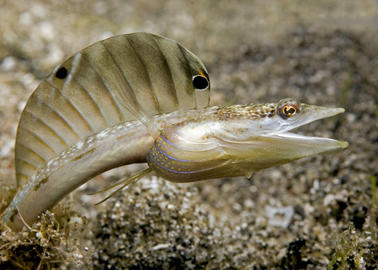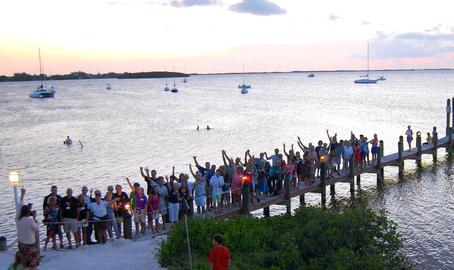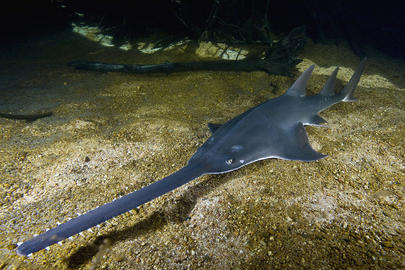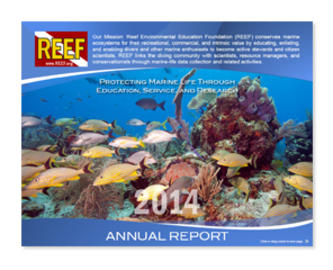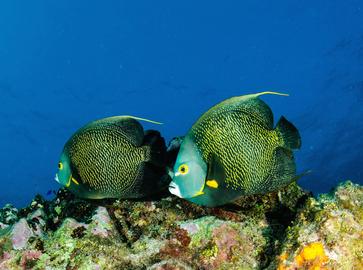Come learn how about & how to ID Sea Chubs & Porgies. Class starts at 7 pm at REEF HQ, MM 98.3, Key Largo
Conducting survey dives on Sunday July 26th, 7am, to the Ledges
*must be certified diver
Participants receive $10 off their dives
Charleston Scuba, South Carolina
Please join us for a free fish ID class before our dives, on July 15th at 6:30pm at Charleston Scuba.
The fish ID seminar can be turned into a Project AWARE Fish ID specialty(for additional cost)
Free Fish ID seminar Wednesday July 15th at 6:30 PM
Charleston Scuba, South Carolina
This fish ID seminar can be turned into a Project AWARE Fish ID specialty(for additional cost)
Conducting survey dives on Sunday July 26th to the Ledges,
*must be certified diver
Participants receive $10 off their dives
We have a SIX great Fishinars planned for July. These hour-long sessions enable you to learn and have fun from the comfort of your living room. We hope you will join us - it's free for REEF members. Check out the full schedule and links to register at www.REEF.org/fishinars.
Join us in Key Largo this fall for REEF Fest 2015, September 24 - 27. Celebrate the success and impact of REEF's marine conservation programs and education initiatives with diving, learning, and parties. Festivities begin Thursday with afternoon seminars and then a welcome party at the Caribbean Club. Friday and Saturday are full days, with diving in the mornings, seminars in the afternoons, and social events in the evenings (Friday Open House at REEFHQ and Saturday Celebration Dinner Party). The fun wraps up on Sunday with more organized dives. All REEF Fest events are open to the public.
Every month, scientists, government agencies, and other groups request raw data from REEF’s Fish Survey Project database. Here is a sampling of who has asked for REEF data recently and what they are using it for:
- A research group at Palm Beach State College is using REEF data on South Florida fish assemblages to evaluate beach renourishment projects.
- Researchers from NOAA's Biogeography office are including REEF data in the development of a management plan for the marine portion of the NE Ecological Corridor Reserves in NE Puerto Rico and Culebra Island.
We are proud to release REEF's 2014 Annual Report, reviewing accomplishments from our ocean conservation and education programs. Click here to view the Annual Report. In the report, we highlight many achievements and successes in 2014, such as:
REEF’s Summer Donation Matching Campaign is going on now. Please consider making your donation today - click here to donate online! Our supporters have pledged $60,000 to match your donations this summer dollar for dollar. We are about a third of the way to our goal, and we know we can count on the support of our members. Your support helps ensure that we can continue the critical work to protect our world oceans through education and research. Please consider donating today to help us reach our fundraising goal.

